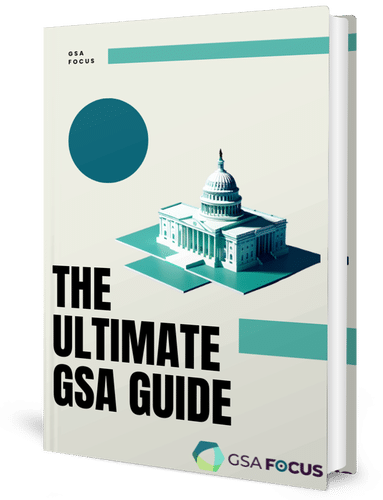Winning government contracts can be a game-changer for businesses looking to expand their operations and increase revenue. One of the most lucrative avenues for securing government contracts is through the General Services Administration (GSA). GSA contract opportunities open doors to a wide range of government projects and can provide a steady stream of work for businesses of all sizes and industries.
GSA contracts are awarded by the federal government and cover a diverse range of goods and services. Whether your business specializes in technology, construction, consulting, or any other field, there are GSA contract opportunities that align with your expertise.
So, how can your business secure GSA contracts and tap into this lucrative market? This article will guide you through the process, from understanding government contracting regulations to crafting winning proposals. By harnessing the power of GSA contract opportunities, your business can unlock new avenues for growth and success.
Key Takeaways:
Table of Contents
Toggle- Winning government contracts can fuel business growth and increase revenue.
- GSA contract opportunities cover various industries and specialties.
- Understanding government contracting regulations is essential for success.
- Thorough research and strategic bidding can maximize opportunities for government contracts.
- A well-crafted proposal is crucial for securing GSA contracts.
Research for Success in Government Contracting
Before diving into government contracting, thorough research is essential. By understanding government contracting regulations and different types of contracts, businesses can position themselves for success in winning GSA contracts.
Familiarize Yourself with Government Contracting Regulations
One of the first steps in researching for success in government contracting is understanding the applicable regulations. The Federal Acquisition Regulation (FAR) is a critical piece of legislation businesses should familiarize themselves with. This regulation sets the rules and procedures for acquiring goods and services by the federal government. Additionally, agency-specific regulations may impose additional requirements and guidelines on contractors.
Explore Different Types of Government Contracts
To position your business for GSA contract opportunities, it’s important to familiarize yourself with the different types of government contracts available. Here are three common types:
| Contract Type | Description |
|---|---|
| Fixed-Price Contracts | These contracts specify a set price for goods or services. The contractor is responsible for completing the work within the agreed-upon price. |
| Cost-Reimbursement Contracts | With cost-reimbursement contracts, the government reimburses the contractor for allowable costs incurred during the performance of the contract. These contracts often involve more flexibility in pricing and may include incentives or bonuses. |
| Time-and-Materials Contracts | Time-and-materials contracts combine elements of both fixed-price and cost-reimbursement contracts. Contractors are paid an agreed-upon hourly rate, as well as for material costs. These contracts are commonly used for services where the requirements are not well-defined at the outset. |
By understanding the intricacies and advantages of each contract type, businesses can strategically focus their efforts on contracts that align with their capabilities and expertise.
Thorough research is the key to success in government contracting. By familiarizing yourself with government contracting regulations, such as the Federal Acquisition Regulation (FAR) and agency-specific regulations, and understanding the different types of government contracts, you can position your business for GSA contract opportunities and increase your chances of winning lucrative government contracts.
Maximizing Opportunities for Government Contracts
When it comes to securing government contracts, having a targeted marketing strategy is crucial. By adopting a proactive approach, businesses can maximize their opportunities for GSA contracting and tap into the vast potential of government procurement. Here are some key strategies to consider:
1. Attend Industry Events and Trade Shows
Industry events and trade shows provide excellent networking opportunities and a platform to connect with government agencies. These events offer a chance to showcase your products or services, gain industry insights, and establish valuable connections that can lead to GSA contracting opportunities.
2. Leverage Online Platforms like LinkedIn
In today’s digital age, online platforms like LinkedIn play a crucial role in connecting businesses with government agencies. By leveraging LinkedIn, you can build relationships with key decision-makers, showcase your expertise, and stay updated on GSA contracting opportunities. Engaging in relevant discussions and sharing valuable content can also enhance your visibility and credibility.
3. Explore Government Contracting Databases
Gaining access to government contracting databases like the Federal Business Opportunities portal can provide a wealth of information on GSA opportunities. These databases allow businesses to search for relevant contracts, view procurement forecasts, and identify potential partners for teaming arrangements or subcontracting.
4. Consider Subcontracting
For businesses looking to pursue larger contracts or collaborate with experienced government contractors, subcontracting can be a viable option. Partnering with established contractors can offer valuable insights, enhance your capabilities, and open doors to new GSA contracting opportunities.
By implementing these strategies, businesses can position themselves for success in the GSA contracting process. Remember, maximizing opportunities for government contracts requires proactive engagement, continuous research, and persistence in pursuing the right GSA contracting opportunities that align with your expertise and capabilities.
Crafting a Winning Proposal for Government Contracts
Securing government contracts requires a well-crafted proposal. To increase the chances of winning GSA contracts, businesses should follow these essential steps:
- Meet all necessary requirements: Before submitting a proposal, ensure that your business meets all the prerequisites set by the government agency. This includes having the required certifications, qualifications, and financial stability.
- Conduct thorough market research: Understanding the current market trends and demands is crucial for crafting a competitive proposal. Analyze your target audience, competitors, and industry landscape to identify unique selling points and develop a compelling strategy.
- Selectively bid on contracts: Instead of bidding on every available government contract, focus on opportunities that align with your company’s strengths and capabilities. This targeted approach increases the chances of winning contracts that your business is uniquely qualified for.
- Pay attention to the request for proposal (RFP) document: The RFP provides important guidelines and requirements for the proposal. Carefully review and understand all instructions, evaluation criteria, and deadlines. Adhering to the RFP ensures your proposal is compliant and stands out to the evaluators.
- Highlight unique value propositions: Showcase your business’s unique strengths and capabilities that differentiate you from competitors. Emphasize any specialized expertise, innovative solutions, or cost-saving measures that can benefit the government agency.
- Communicate expertise through case studies and testimonials: Provide concrete evidence of your past successes by including case studies and testimonials in your proposal. This demonstrates your ability to deliver on promises and adds credibility to your proposal.
- Seek professional help if needed: Crafting a winning proposal can be complex and time-consuming. Consider hiring consultants or experts in government contracting to ensure your proposal is comprehensive, persuasive, and tailored to the specific requirements.
By following these steps and investing the necessary time and effort into crafting a winning proposal, businesses can significantly improve their chances of securing lucrative GSA contracts.
Common Mistakes to Avoid in Government Contracting
When navigating the GSA contracting process, it is crucial for businesses to be aware of and avoid common mistakes that can hinder their success. By understanding the GSA contract requirements and maintaining compliance with government regulations, businesses can increase their chances of securing lucrative government contracts.
One common mistake to avoid is bidding on too many contracts. While it may seem tempting to cast a wide net in the hopes of winning multiple contracts, spreading resources too thin can dilute the quality of proposals and reduce the chances of success. Instead, businesses should focus on identifying contracts that align with their capabilities and expertise, allowing them to put forth strong and targeted proposals.
Underestimating the competition is another pitfall to avoid. Government contracting is a highly competitive landscape, with numerous businesses vying for the same contracts. It is important to thoroughly research and understand the competition, including their strengths, weaknesses, and past performance. This knowledge will enable businesses to differentiate themselves and highlight their unique value propositions in their proposals.
Lastly, maintaining compliance with government regulations is essential. Failure to do so can result in disqualification from the contracting process or even legal consequences. Businesses must stay updated on any changes to regulations, ensure proper documentation and record-keeping, and adhere to all contractual obligations. By prioritizing compliance, businesses can build trust with government agencies and position themselves as reliable and trustworthy partners.
Source Links
- https://www.gsaschedulecontract.com/blogs/guide-to-gsa-schedule-2024
- https://www.gsascheduleservices.com/blog/easiest-government-contracts-to-win/
- https://www.gsascheduleservices.com/blog/how-to-get-government-contracts/



